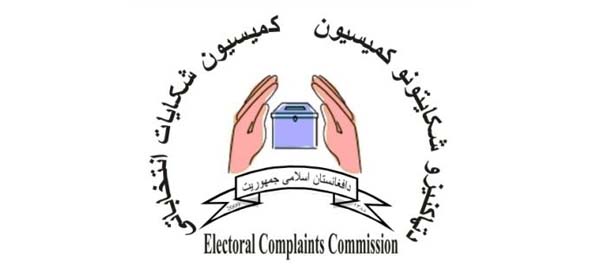The long-delayed formation of the electoral reforms commission has come as a major step forward for reforming Afghanistan’s electoral system and preparing the ground for the upcoming parliamentary elections. However, there are concerns whether the National Unity Government is really and sufficiently committed to bringing genuine reforms to the electoral laws, procedures and the governing bodies and planning for the parliamentary elections. The Meshrano Jirga on Tuesday July 21,2015 criticized the National Unity Government (NUG) for failing to announce the timeline of the parliamentary elections, saying that in protest to the issue the house would cease procedural cooperation with the Lower House of the parliament, the Wolesi Jirga. On the other hand, a number of election monitoring organizations have voiced concerns over the make-up of the commission and absence of representatives of women and election monitoring groups in the commission.
The electoral reforms commission is formed after months of differences between the leaders of the National Unity Government (NUG) over who should lead the commission. Forming the commission for reforming the electoral system and procedures as well as the electoral bodies was a key provision of the agreement that led to formation of the NUG. The formation of the commission suggest a major compromise between the NUG leaders and a major development for the efforts to reform the electoral system in order to avoid another fraudulent and controversial elections. Despite the major step ahead, it is quite premature to judge whether the government and the reforms commission would be able to bring adequate and reliable reforms to Afghanistan’s electoral system, procedures and the two major election commissions in charge of holding national elections. There are widespread disappointments among observers and election monitoring groups over the formation and make-up of the commission as well as concerns over how it will lead the electoral reforms process, which is to be a key state-building reform for Afghanistan’s political establishment.
There are still profound differences among key stakeholders of Afghan politics over the nature of reforms to the electoral system, procedures and election commissions. The differences that delayed formation of the reforms commission are still lingering in the Afghan political arena and are potentially distracting for the nascent reforms process. There is no agreed reform agenda for modifying and reforming the current electoral system, making the task of the reform commission much more difficult. The commission has merely an advisory role for reforming the Afghan electoral system and election bodies, making the reform commission incapable of bringing changes and making decisions for reforming the electoral system. The commission is supposed to propose recommendations to the government on reforms to the Afghan election system and the two election bodies. This incompetency makes the reforms commission vulnerable to failure and the efforts for reforms ineffectual. This could trigger another political stalemate in Afghanistan over the reform of the electoral system and the fate of the upcoming parliamentary elections.
One of the criticisms made to the formation of the electoral reforms commission is the political nature of the make-up of the commission and dependency of the members of the commission to key political figures and stakeholders of the NUG. According to two major Afghan election monitoring organization, a major step is taken for reforming the electoral system. However, they expressed their concerns over failure of the NUG to appoint commission members based on their technical knowledge and understanding of the reform task. The transparency advocacy groups expressed concerns over the fact that the newly appointed members of the commission are loyal to the two major camps of the national unity government. This puts the commission’s work vulnerable to politics while in nature the reform issue to the electoral system and procedures is highly legal and technical.
It seems the electoral reforms commission is facing enormous challenges in the very beginning of its difficult task of reform to the election system and the election commissions. There are profound political differences among key government stakeholders and the Afghan political spectrum affecting the process and development of reforming the electoral system. The reforms commission is tasked with recommending reforms to the whole electoral system and procedures as well as the two electoral bodies responsible for holding the verifying national elections. This is while all efforts of the commission could end up in vain as the reform efforts will need a genuine political will from the President and the Chief Executive Officer as well as all other major stakeholders of the unity government. There are fears that there may be no real and genuine political will for change and that the formation of the reforms commission may be another time-buying measure from the government.
A key challenge for the reforms commission is the complexity of combining political, technical and legal nature of the reform task. It means that the commission should do a difficult job of reconciling political, technical and legal nature of the reformation of Afghanistan’s electoral system. This makes the task highly unachievable since reconciling a genuine electoral reform with the political necessities would be highly difficult and even impossible. Therefore, the task of reforms to the electoral system is more a political trend that needs compromise from the stakeholders of the Afghan politics and the NUG. A successful reform process needs that the leaders of the NUG first reach to a concrete reform plans and provide sufficient authority to the reforms commission for proposing reform programs. Any time-buying measures from the leaders of the NUG would only deepen the problem and make the reform goals further unattainable. A political uncertainty is looming in the country with the parliamentary elections going into a potential legal and political stalemate. Politically-motivated and time-buying reform measures would only worsen the looming uncertainly related to the upcoming national elections.

